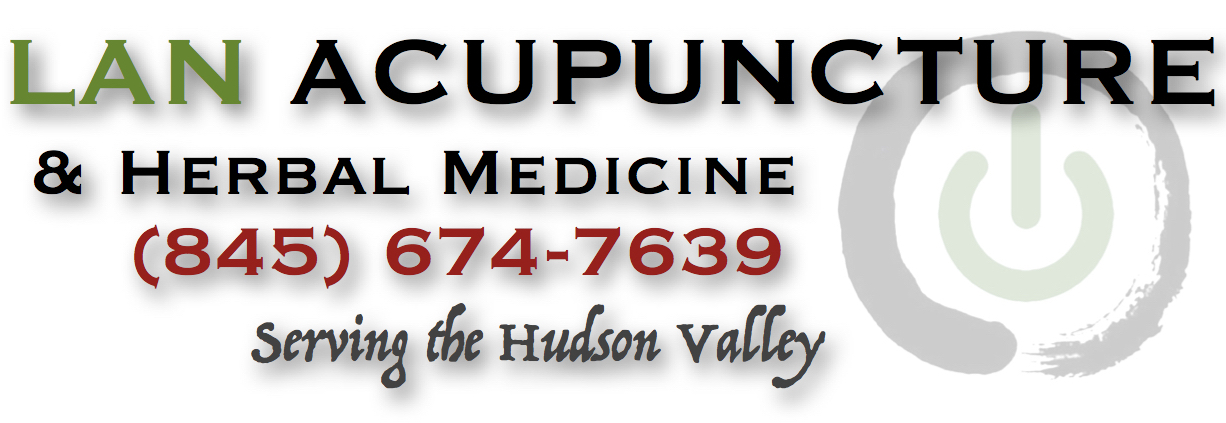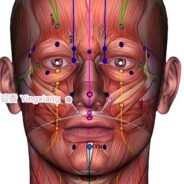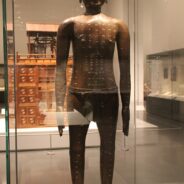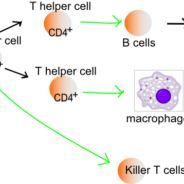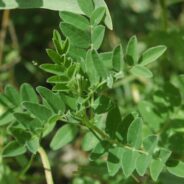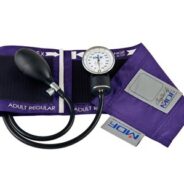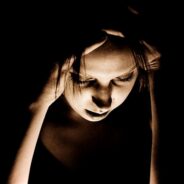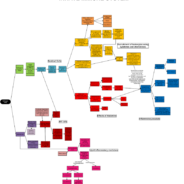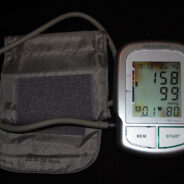How does acupuncture work from a biomedical perspective?
As methods of scientific inquiry have progressed, the mechanisms of acupuncture are beginning to be more clearly understood. While the mechanisms can get quite complex, ultimately acupuncture is a remarkably simple technique that depends entirely upon one thing: the stimulation of the peripheral nervous system.
Broadly speaking, acupuncture
- relieves pain.
- reduces inflammation.
- restores homeostasis.
Homeostasis refers to the body’s ability to regulate its environment and maintain internal balance. All diseases involve a disturbance of homeostasis, and nearly all diseases involve some degree of pain and inflammation. In fact, research suggests that many serious conditions such as heart disease previously thought to have other causes are in fact primarily caused by chronic inflammation. If we understand that most diseases are characterized by pain, inflammation and disturbance of homeostasis, we begin to understand why acupuncture can be effective for so many conditions.
The following is a list of mechanisms that have been identified so far:
- Acupuncture promotes blood flow. This is significant because everything the body needs to heal is in the blood, including oxygen, nutrients we absorb from food, immune substances, hormones, analgesics (painkillers) and anti-inflammatories. Restoring proper blood flow is vital to promoting and maintaining health. For example if blood flow is diminished by as little as 3% in the breast area cancer may develop. Blood flow decreases as we age and can be impacted by trauma, injuries and certain diseases. Acupuncture has been shown to increase blood flow and vasodilation in several regions of the body, and is the only treatment shown to increase blood flow to the uterus.
- Acupuncture stimulates the body’s built-in healing mechanisms. Acupuncture creates “micro traumas” that stimulate the body’s ability to spontaneously heal injuries to the tissue through nervous, immune and endocrine system activation. As the body heals the micro traumas induced by acupuncture, it also heals any surrounding tissue damage left over from old injuries.
- Acupuncture releases natural painkillers. Inserting a needle sends a signal through the nervous system to the brain, where chemicals such as endorphins, norepinephrine and enkephalin are released. Some of these substances are 10-200 times more potent than morphine!
- Acupuncture reduces both the intensity and perception of chronic pain. It does this through a process called “descending control normalization”, which involves the serotonergic nervous system.
- Acupuncture relaxes shortened muscles. This in turn releases pressure on joint structures and nerves, and promotes blood flow.
- Acupuncture reduces stress. This is perhaps the most important systemic effect of acupuncture. Recent research suggests that acupuncture stimulates the release of oxytocin, a hormone and signaling substance that regulates the parasympathetic nervous system. You’ve probably heard of the “fight-or-flight” response that is governed by the sympathetic nervous system. The parasympathetic nervous system has been called the “rest-and-digest” or “calm-and-connect” system, and in many ways is the opposite of the sympathetic system. Recent research has implicated impaired parasympathetic function in a wide range of autoimmune diseases, including arthritis, lupus, rheumatoid arthritis and inflammatory bowel disease.
Several other mechanisms have been identified, but the ones I’ve listed above are the most relevant and clearly understood. When you consider that the Chinese made these discoveries hundreds of years B.C., acupuncture is even more impressive.
Some purists object to acupuncture being described in biomedical terms. They feel that such descriptions are reductionistic and don’t take into account those aspects of acupuncture that we may not yet understand. While it is true that we don’t yet fully understand how acupuncture works, we should aim to provide each patient with the latest medical understanding available in terms they can understand and relate to. Doing this will improve open the door for acupuncture to be integrated into the healthcare system, which is needed now more than ever.
Laith Naayem L.Ac., MSOM
Licensed Acupuncturist
New Windsor NY
(845) 674-7639
Allergies
Acupuncture and moxibustion are effective treatment modalities for allergic rhinitis relief. In a meta-analysis of 39 studies involving 3,433 allergic rhinitis patients, acupuncture improved nasal symptoms and rhinoconjunctivitis scores. Researchers determined that all types of acupuncture modalities are significantly superior to sham controls. Moreover, moxibustion was found effective within six treatments. Integrative medicine produced excellent outcomes. A combination of acupuncture plus conventional Read more...
read moreMelatonin and Insomnia
Acupuncture has been found effective for the alleviation of insomnia in modern research. Several investigations make important clinical findings. The first piece of research covered in this article finds acupuncture superior to placebo controls. The second study finds acupuncture effective for improving sleep, reducing anxiety, and increasing neurohormonal endogenous secretions of melatonin. In a meta-analysis of 1,108 patients, acupuncture was found superior to sham/placebo controls for improving Read more...
read moreLoss of Smell and Taste
Acupuncture demonstrates clinical efficacy for postviral recovery from the loss of the sense of smell. COVID-19 (coronavirus) patients often experience diminished olfaction, with a median return of the senses of taste and smell within eight days. However, long-term impacts on both gustation (tasting) and olfaction have been reported in COVID-19 cases. Research on acupuncture’s ability to benefit the restoration of olfaction indicates that it is a potentially effective treatment modality for the Read more...
read moreChemotherapy and Neuropathy
Acupuncture alleviates neuropathic symptoms due to chemotherapy-induced peripheral neuropathy (CIPN) in breast cancer survivors. A randomized-controlled trial was conducted at the Dana-Farber Cancer Institute (Boston, Massachusetts). The results demonstrate that an 8-week intensive acupuncture protocol (18 sessions) greatly reduces pain intensity levels, pain interference, and average pain levels. The results also show significant improvements in CIPN-specific and general quality of life scores, Read more...
read moreImmune System Benefits
Researchers conclude that acupuncture benefits the immune system. In a controlled laboratory experiment, Hubei University of Chinese Medicine researchers discovered that electroacupuncture stimulation of acupuncture point ST36 (Zusanli) “enhanced the level of immune cytokines and splenic CD4+ T cells through TRPV channels.” In addition, the researchers document that electroacupuncture applied to ST36 enhances serum interferon-γ (IFN-γ) levels, interleukin (IL)-2, and IL-17. Results were Read more...
read moreEndometriosis
Researchers from Nanjing Traditional Chinese Medicine University and Haian Traditional Chinese Medicine Hospital find acupuncture combined with herbs effective for the alleviation of endometriosis. Two patient groups were compared in a six month clinical trial. One group received Traditional Chinese Medicine (acupuncture and herbs) and the other group received mifepristone (RU-486®, a synthetic steroid that inhibits progesterone action, used for the treatment endometriosis or as an abortifacient). Read more...
read moreEssential Hypertension
Heilongjiang Woniutuzhen Hospital researchers find acupuncture effective for the treatment of essential hypertension. In a controlled study, patients received acupuncture treatments for six weeks and achieved significantly lower ambulatory blood pressure (ABP), sitting blood pressure, and overall heart rates after treatment with acupuncture. ABP was measured with an ABP monitor and sitting blood pressure was measured with a sphygmomanometer. Based on the pre-treatment and post-treatment blood Read more...
read moreMigraines and Headaches
Acupuncture enhances positive patient outcome rates for patients suffering from headaches. In separate and independent investigations, researchers have determined that acupuncture significantly boosts the effectiveness of occipital nerve stimulation (ONS) and levo-tetrahydropalmatine (l-THP) drug therapy. Since the late 1970s, neurosurgeons have implanted ONS devices at the base of the skull for the treatment of headaches. An electrical signal is generated by ONS devices to override pain. Researchers Read more...
read moreAcupuncture Benefits Immune System
Researchers conclude that acupuncture benefits the immune system. In a controlled laboratory experiment, Hubei University of Chinese Medicine researchers discovered that electroacupuncture stimulation of acupuncture point ST36 (Zusanli) “enhanced the level of immune cytokines and splenic CD4+ T cells through TRPV channels.” In addition, the researchers document that electroacupuncture applied to ST36 enhances serum interferon-γ (IFN-γ) levels, interleukin (IL)-2, and IL-17. Results were confirmed Read more...
read moreTreatment of Hypertension
Researchers find acupuncture effective for the treatment of hypertension in middle-aged adults. In a groundbreaking eight week acupuncture trial, an international research team documents that acupuncture causes significant improvements in both brachial blood pressure and central aortic blood pressure in hypertensive middle-aged adults. The scientific investigation was a collaboration between researchers from Larkin Community Hospital (Miami, Florida), Marymount University (Arlington, Virginia), Read more...
read more